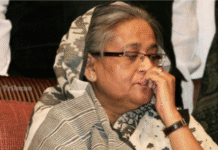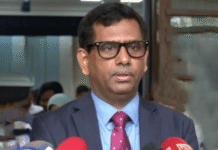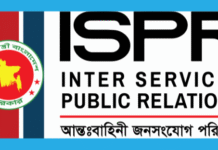
India is currently not issuing medical visas to Bangladeshis, except for critical cases, amid the diplomatic tensions between the two countries. This has created significant difficulties for general patients, as they are unable to attend follow-up appointments or book new ones in the neighbouring country.
As a result, many Bangladeshi patients are turning to alternative medical destinations like Thailand, Malaysia and Singapore but treatment in these countries and the travels are not affordable for many.
According to data from India’s tourism ministry, around 2.5 million medical tourists travel to India from Bangladesh every year, spending about $500 million on healthcare.
Dr. Shafiun Nahin Shimul, a professor at Dhaka University’s Institute of Health Economics, said the current situation could be a chance to create a referral system in Bangladesh, where patients are referred to the right doctors or hospitals, making healthcare more organised in the future.
He said, “Our doctors are just as good, but there are communication gaps. By researching why patients go abroad, we can improve the quality of healthcare services in Bangladesh.”
Drop in India-bound Bangladeshi patients f
A Bangladeshi representative from a private Indian hospital, speaking anonymously to The Business Standard, said India reduced its visa processing significantly after 5 August.
“Our Bengaluru branch used to receive over 400 new patients from Bangladesh every month, but last month, it got only 100 new patients. Similarly, our two Kolkata branches, which usually handle 1,200–1,900 patients a month, saw only 150–250 patients in November,” the representative said.
“Many are afraid to go. For example, one of my patients had surgery scheduled for 3 December at a Kolkata hospital. On the morning of the surgery, the patient cancelled, citing the tense situation. The doctors and operation theatre were ready, but the patient didn’t show up.”
The representative also mentioned that wealthier patients, who previously went to Delhi for treatment, are now seeking alternatives in Thailand, Malaysia, Singapore and sometimes Turkey.
He added, “This month, we received death reports for two patients who were supposed to travel to India last month for follow-ups but couldn’t due to visa issues. Cancer patients usually return home for three to six months after chemotherapy, but now many can’t attend their follow-ups.”
One patient, Yasmin (not her real name), has been suffering from liver scarring and infection-related issues for two years. Despite consulting doctors in Bangladesh, her condition worsened, leading her to seek treatment in India.
Since last year, she has been receiving treatment at AIG Hospital in Hyderabad, but due to visa issues, her scheduled check-up has been delayed for over four months, causing her health to deteriorate further.
Bangladeshi patients often travel to India for treatments like transplants, cardiology, neurology, orthopaedics and oncology.
According to a report in the Indian newspaper Ei Samay, private hospitals in Kolkata are losing Rs 12–21 lakh in weekly revenue on average due to the decline in Bangladeshi patients.
Assurance from Kolkata doctors
Doctors in Kolkata have reiterated their commitment to treating Bangladeshi patients as before. Peerless Hospital CEO Sudipta Mitra told The Times of India, “We will not discriminate against patients from Bangladesh in any way.”
Dr Deepak Shankar Ray, head of the nephrology department at Rabindranath Tagore International Institute of Cardiac Sciences, noted that the number of Bangladeshi patients had dropped from 20 to around five daily in recent days, but not because of hospital policies.
“The decline is due to visa and travel issues. As doctors, we treat all patients equally, regardless of community, religion, or nationality. We will continue serving patients from our neighbouring country who can make it to the city,” he said.
At a press conference on 4 December, doctors from the West Bengal chapter of the Indian Medical Association said Bangladeshi patients are being offered online consultations due to visa complications. They also said that many doctors are issuing certificates to help patients secure medical visas and announced plans to launch a helpline soon.
Shift to alternative medical destinations
Chowdhury Hasanuzzaman Rony, managing director of Trip Maker, told TBS, “We currently have no patients travelling to India—absolutely zero. Previously, we had at least 10–15 patients going to India every month. Now, serious patients are opting for Thailand. Last month, 11 patients travelled to Thailand, eight of whom were new.”
In addition, a growing anti-India sentiment in Bangladesh has shifted medical tourism to Malaysia. Malaysia’s medical tourism industry is benefiting significantly from the growing demand, as it offers affordable and high-quality healthcare services, according to Travel and Tour World.
Mazadul Noyon, manager of Suea Noi Fit & Fly, a medical and tour operator agency based in Bangkok, told TBS that they receive more than 200% more calls and messages now compared to four months ago. “Over 80% of patients tell us they had planned to go to India but now can’t due to visa issues, so they want to come to Thailand instead.”
However, he expressed sympathy for many of these patients. “Treatment in Thailand is much more expensive than in India or Bangladesh. Even in government hospitals, the waiting time is long, and the costs are high for foreigners. Staying in Thailand for a long period is also costly.”
He added that more than 80% of patients who considered Thailand as an alternative to India could not afford it and failed to get proper treatment.
Chowdhury Hasanuzzaman Rony noted that airfare is a major factor when travelling to Thailand. “In the past, patients could travel to India by bus or train. The cost of treatment in Thailand is 5-10% higher than in India, so only those who can afford it are going there.”
Dr Shafiun Nahin Shimul said, “Given the current situation, the Bangladesh government could start discussions with India, as it is mainly general patients who travel there for treatment. Wealthier patients have always preferred Thailand or Singapore for treatment over India.”
He added, “Sri Lanka could also be a good alternative to India. They have a strong healthcare system, and treatment costs are lower. The government could negotiate with major private hospitals like Evercare and United to make treatment more accessible to poorer patients.”
TBS









